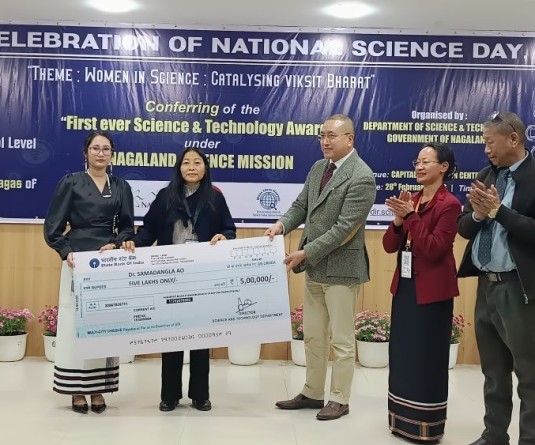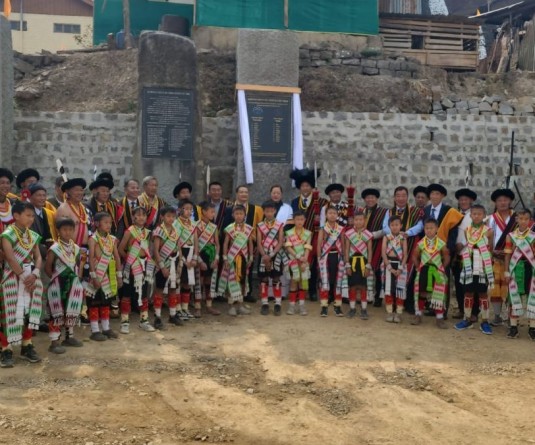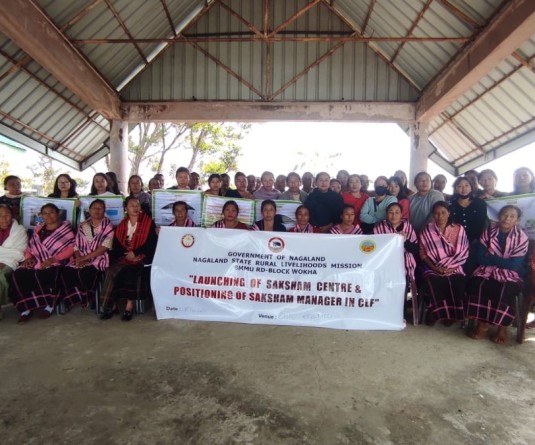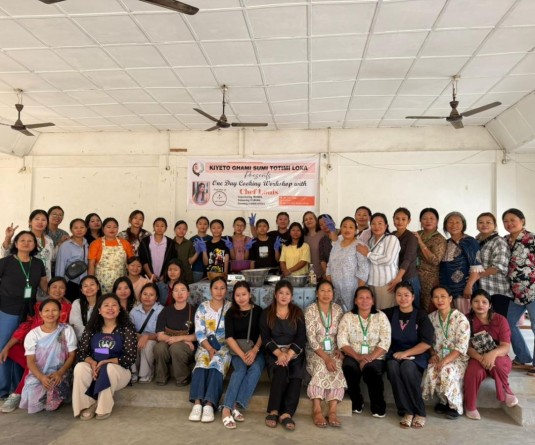Avinuo Kire (left) in conversation with poet T Keditsu (right) during the first series of Open House on July 26. (Photo Courtesy: Jabu Krocha)
Morung Express News
Kohima | July 26
Underlining that AI can never be something original or fresh, Poet & Writer, Avinuo Kire asserted that, “we have to approach writing with a lot of integrity ethics.” She was in conversation with poet, educator & member of Writers Collective Kohima, T Keditsu during the first series of Open House on July 26.
In this connection, she also underscored that in writing, “what is more important is that you are being true to yourself” while expressing that “when it comes from a place of honesty and you know that you're being absolutely honest with your craft, there's nothing as satisfying.”
She also recalled her journey into writing and spoke about the books she has authored including “The Power to forgive”, which she highlighted was inspired by a news report titled “Father forgives rapist”. Sharing that this disturbed her on so many levels and made her question the institution of patriarchy where women are often seen and not heard, she also noted that, “forgiveness and healing are very important but violence must be addressed before forgiveness takes place.”
T Keditsu further remarked that one of the common themes that Kire explores in her books is the Naga life and Naga existence beyond stereotypes and how her women characters really stand out wherein she explores the inner worlds and inner thoughts of these women and how they go through crisis.
Throwing light on these thoughts, Avinuo Kire said that, “I find great comfort in writing about what I know and based on my observations around people I know. Something I love about Naga people is that they are very ordinary people living extraordinary lives.” “I have always inspired by ordinary people”, she added.
She also stated that being a woman herself, it is very natural to put herself into the shoes of these women while impressing upon that fiction is often rooted in something that is real, and that fiction is a safe space for women to express themselves.
When asked what is her politics of writing, she commented that, “my politics of writing is not radical…it’s been a long journey of learning and unlearning, but reclaiming the language is my personal politics.” She also noted that, “our history, our politics, our culture, and our experiences are unique from the rest of the world and this is reflected in literature” while highlighting about her thoughts on Naga Literature.






